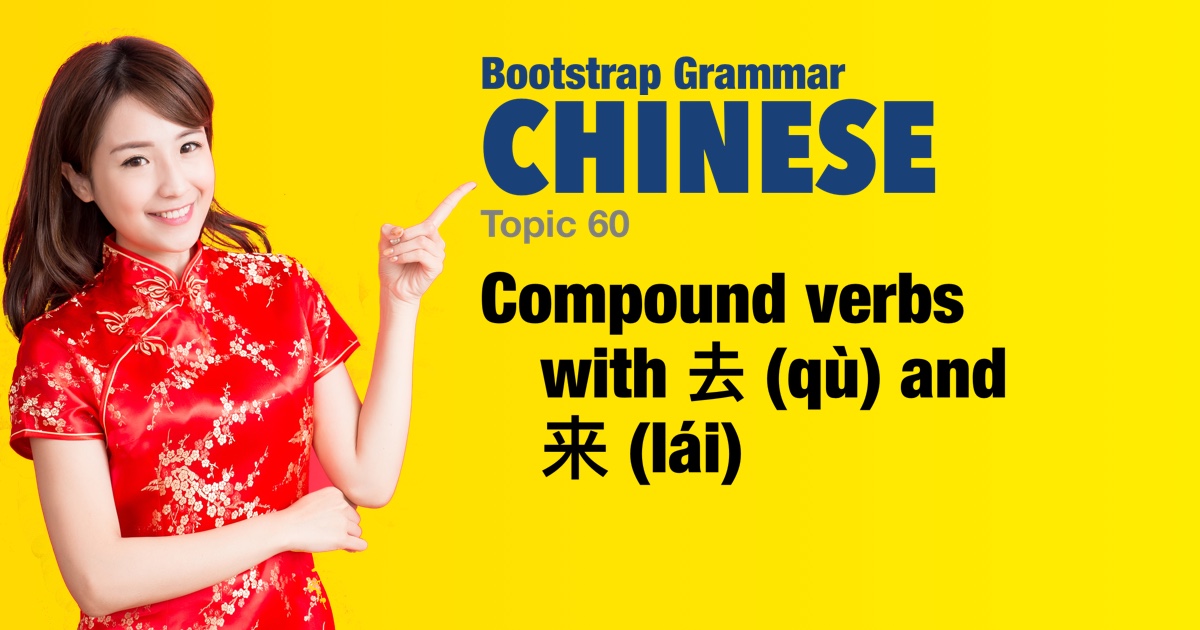Chinese grammar - Compound verbs with 去 (qù) and 来 (lái) |
|||
|
|||
In Chinese, a root verb can be combined with another character to refine its meaning. As we have seen these are called compound verbs. In the case of 去 (qù) and 来 (lái) compound verbs can specify the direction or purpose of the movement. For instance, add the character 回 (huí) which means 'to return' or 'to go back': • 回去 (huí qù) means 'to go back' or 'to return'. • 回来 (huí lái) means 'to come back' or 'to return'. Likewise the characters: 出 (chū) means 'exit', 进 (jìn) means 'enter' and 赶(gǎn) means 'hurry'. |
| Examples: | |
|
请进去。
qǐng jìn qù. Please go in.
|
|
|
他赶去机场。
tā gǎn qù jīchǎng. He hurries to the airport.
|
|
|
他不回去。
tā bù huí qù. He does not go back.
|
|
|
我们出去散步。
wǒ men chū qù sànbù. We go out for a walk.
|
|
|
她出来见朋友。
tā chū lái jiàn péngyǒu. She comes out to meet (see) a friend.
|
|
|
请进来坐。
qǐng jìn lái zuò. Please come in and sit.
|
|
|
他赶去火车站。
tā gǎn qù huǒchēzhàn. He hurries to the train station. |
|
|
她赶来参加会议。
tā gǎn lái cānjiā huìyì. She comes in a hurry to attend the meeting.
|
|
|
我们回去看电影。
wǒ men huí qù kàn diànyǐng. We go back to watch a movie. |
|
|
我回来拿我的手机。
wǒ huí lái ná wǒ de shǒujī. I come back to get my phone.
|
|
|
他出去买东西。
tā chū qù mǎi dōngxi. He goes out to buy something. |
|
|
你出来呼吸新鲜空气。
nǐ chū lái hūxī xīnxiān kōngqì. You come out to breathe fresh air.
|
|
|
她进去找书。
tā jìn qù zhǎo shū. She goes in to find a book. |
|
|
我赶去机场。
wǒ gǎn qù jīchǎng. I hurry to the airport. |
|
|
他们赶来帮助我们。
tā men gǎn lái bāngzhù wǒ men. They hurry to help us. |
|
|
她不回去做作业。
tā bù huí qù zuò zuòyè. She does not go back to do homework. |
|
|
他回来见父母。
tā huí lái jiàn fùmǔ. He comes back to see his parents.
|
|
|
我们出去吃饭。
wǒ men chū qù chīfàn. We go out to eat. |
|
|
请进来谈谈。
qǐng jìn lái tántan. Please come in and talk.
|
|
 |
|



